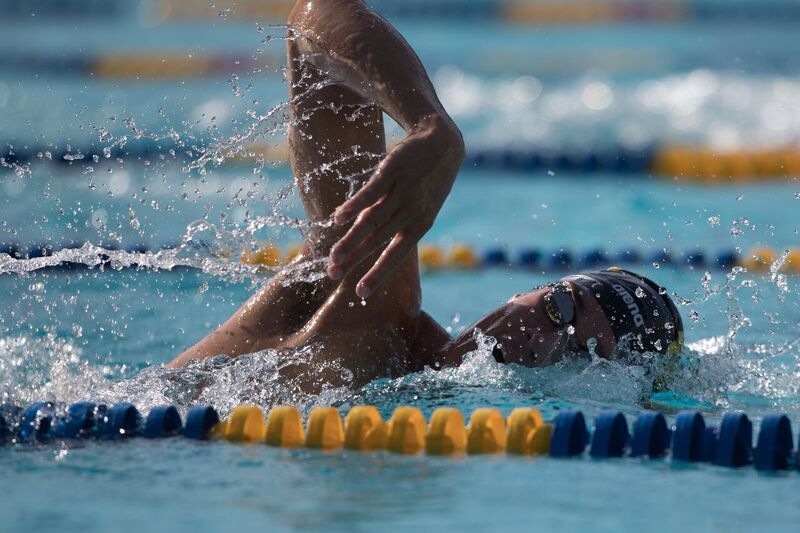Courtesy of Elizabeth Wickham
After years of swimming throughout their high school and college years, our children haven’t had much time for internships and part-time jobs. While creating resumes for career fairs and job interviews, they may wonder what they should write when they’re lacking basic items non-athletes include.
As parents, we can advise them that swimming is their full-time job and that they’ve put in hours not only for practice, but for team meetings, and travel to meets. If they’ve earned a college scholarship, swimming is how they help pay for their education, not unlike kids who work over summers and part-time during the school year.
Swimmers do have experience and skills that employers desire. Through their hard work and persistence, they’ve developed traits that will serve them well in the workforce.
Here are six traits our kids have learned from swimming that they can include on their resumes:
ONE
Time management.
Swimmers must seem superhuman to non-student athletes. They spend hours at practice each day and are in the water while other kids haven’t rolled over in bed to turn off their alarms. They learn to balance swim commitments with a full-course load. Our kids use their time wisely and are organized because they know it’s hard to study on the bus or plane to travel meets. It’s better, they’ve discovered, to get the paper written ahead of time.
TWO
Teamwork.
High school and college swimming is less about the individual and more about the team. My daughter’s proudest moment in college so far was not a best time–but fighting through the mile with the flu—and scoring points for her team at the conference meet. Our kids learn that it’s not just about them, but they’re working for something greater than themselves.
THREE
Coachability.
From the time they first jump into the pool, our kids are being coached and they don’t mind being critiqued whether it’s on technique or race strategy. Swim coaches say they love coaching kids who are “coachable.” Employers are no different and are thrilled to have employees who learn from constructive criticism.
FOUR
Communication skills.
Our kids learn to communicate with a variety of people through swimming including coaches, swim parents, officials and the media. Through the recruiting process for college, they communicate with a number of coaches and student-athletes, verbally and through emails. They develop skills that lead to self-confidence—which is another great trait to have.
FIVE
Work ethic.
The sheer nature of swimming cultivates a strong work ethic. Even the most talented kids can’t get by forever without hard work. Swimmers notice those who don’t show up for practice or skip yards during a hard main set. They learn that success doesn’t happen without a good work ethic.
SIX
Perseverance.
Swimmers face failure repeatedly. Do they always get best times? Do they win every race? Of course not! All these small “failures” allow our kids to learn and grow. They don’t give up when they have a less than perfect outcome. Instead, they give it another try and will have some wins. This process turns into perseverance.
What traits do you think swimmers should include on their resumes?
Elizabeth Wickham volunteered for 14 years on her kids’ club team as board member, fundraiser, newsletter editor and “Mrs. meet manager.” She’s a writer with a bachelor of arts degree in editorial journalism from the University of Washington with a long career in public relations, marketing and advertising. Her stories have appeared in newspapers and magazines including the Los Angeles Times, Orange County Parenting and Ladybug. You can read more parenting tips on her blog.

I am a good swimmer who want to join
I would hope employers don’t hire young adults based on how great they look! Unless one is the public “face” of something, how attractive a person is has nothing to do with transferable skills.
Swimmers have goal setting skills, transferable to project management. They are used to briefings and debriefings (scrum). They know Deming and TQM inside and out, because years of training are nothing but continuous improvement, process management.
They have leadership and mentorship skills. Older swimmers are always helping younger and usually spend some time teaching entry level groups in a swim club. They also lead by example, but only if that has been part of their club/post-secondary culture.
Swimmers can meet rapidly changing deadlines under intense… Read more »
You forgot to mention swimmers are great looking kids!!!!
Swimmers are very clean, even if they smile a little like chlorine.